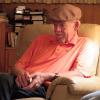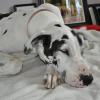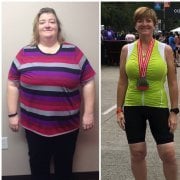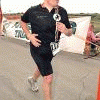Search the Community
Showing results for '경상남도외국인출장만남[카톡: po03]『goos20.c0m』모텔출장콜걸출장안마Yⓛ♦2019-01-19-10-29경상남도✌AIJ☢출장소이스출장아가씨출장샵추천┝출장샵안내1오피△경상남도'.
Found 17,501 results
-


pre operation anxieties
DLCoggin replied to jrhancher's topic in PRE-Operation Weight Loss Surgery Q&A
It isn't uncommon for folks to go back to work after a week but - my surgeon advised me to limit lifting to 10 pounds or less for six weeks following surgery. You don't want to over stress those new suture lines and possibly develop a leak. Walking, sitting, and even bending are all fine as long as you're not experiencing any pain. I have to second what others have said - I was shocked at how little pain there was following surgery. They had me on a morphine pump the day of the surgery and for a while the following morning. I never used it. The afternoon of the day after the surgery I had a little pain. They gave me Tylenol with codeine twice, four hours apart, and that was the last med I took for pain. It worked like a charm and what little pain I experienced subsided very quickly. I was up and walking two hours after the surgery and it helps a lot to not only reduce the pain but also to reduce the gas from the surgery. Walk, walk, walk and sip, sip, sip are great ideas! Congratulations on your decision! You're gonna love the new you!! -


Needing Suggestions on plastic
AZDee replied to simply.silly's topic in Plastic & Reconstructive Surgery
I literally had 10 consults after being told by my first Plastic Surgeon that I needed a Lower Body Lift. I actually was surprised that he suggested one to me at all since I had a pretty small waste with a wrinkly belly but with no hanging skin...He suggested re cutting the open RNY scar that had now faded to a white un noticeable line...I was not even sure if I needed a LBL so I started to have consults to find out what other PS's thought would be best, and it turned out they all felt I could benefit by the LBL but that it would be needed to help all that which had fallen south...my lower body as in the hips and thighs and most importantly my saggy butt. But the most interesting part, not one other PS suggested doing the long vertical cut, that my original surgeon suggested. In later researching I came to find out, he does the majority of his surgeries that way....So take your time, I made road trips to LA and Beverly Hills for consults, and did online consults with many others. You most likely will find that you need to travel in order to find the best surgeon. Most WLS people end up traveling out of state or country to find a Doctor that specializes in their needs. Remember your surgery will only take a week or two out of your life and time, but the results are going to last a life time, so chose wisely. I did and now I couldn't be happier...8 weeks post op today!!! -
Me too..,I just had to remember to stop before i got full SD: 10/10/12, Converted from Lapband to RNY, HW (before band) 263, HW (RNY) 230, Preop 219, after surgery 223, CURRENT... 191YIPPEE!!
-
Lost 10 lbs when isaw my dr for preop diet got down tweleve lbs and now put on 3 in 2 days... Do u think they will cancel my surgery
-


how much food should i start out with???
Jinjin replied to juzmejnee's topic in POST-Operation Weight Loss Surgery Q&A
Juzmejnee- I am 10 days post-op and feel the same way?! I also have to remind myself to eat. -


Today is my day revision to sleeve
nowornever14 replied to tynoodles11's topic in Revision Weight Loss Surgery Forums (NEW!)
@tynodles11 that is what I am afraid of too that my band did a lot of damage over the last 10 years. But hey we won't know until they open me up so.... surprise surprise!! @@aloudwhisper, that is what I feel too, that we have through the band experience with all its glory. The food getting stuck, the vomiting, acid reflux and and and..... only eating 3 bites when everybody around us is thinking : what is wrong with her! " So we are definitely not new to this lifestyle and I am constantly telling myself : it can only get better from here. I am on liquid for about 1.5 weeks now and have 1.5 more to go till surgery day. I don't mind. At least that way I do not need to pay attention to any kind of diet plan. Easy peasy -
I misplaced my Fitbit about 10 days ago and it's driving me INSANE. I will finally break down and order a new one if I don't find it by the weekend. It's still live and still syncing (empty) data to my phone, so I know it wasn't stolen or anything. I'm sure it's in the house somewhere but damned if I know where. I had no idea how addicted I was to it until now.
-


Asking ? for cousin with sleeve...
catwoman7 replied to marfar7's topic in General Weight Loss Surgery Discussions
at two years out, she should be getting double the number of calories she's getting now (if not more - depends on her height, weight, activity level, etc) - unless she's super short or has really screwed up metabolism or something. 662 calories is only common in the first few months after surgery, not at two years out. re: the 10 lb gain, most of us gain 10-20 lbs after hitting our lowest weight, so that's not uncommon. It's almost expected...(not inevitable, but it happens to most people) protein - most of us are encouraged to get 60-80 grams a day. I need 100, but that's because we discovered early on that I malabsorb it - my prealbumin level tanks if I don't get that much. But I'm not the norm. 300 is crazy. No one needs that much - not even body builders. That's so weird that the app is telling her that!! you mentioned an RD - might be a good idea for her to see one to get some good advice and guidelines on what/how she should be eating. She may have some issues that we don't necessarily know about (like me and my protein issue....) -
I just tried the quest chocolate chip cookie dough bar and heated it about 10 seconds it was so good! I only had a third of the bar because I'm on my 3 week pre-op diet (1000 calories a day) but I could see having a small piece of one a couple months after surgery. Also the last 5k event I went to they had power crunch bars one is a wafer type bar and the other is a candy bar with krispy pieces inside those are also pretty darn good as well.
-


Looking from some hints from someone thats already been banded
ababe4utoo@yahoo.com replied to curlicue22's topic in POST-Operation Weight Loss Surgery Q&A
I had the surgery on Aug.12,2009.Just had my first fill on Sept.19.Second fill is on Oct.20.I find that i am still able to eat way to much and not much seems to bother me to eat. I have only lost 25 lbs from the very beginning.15lbs.since surgery.I expected it to be more but am hoping. -


Looking from some hints from someone thats already been banded
Mink replied to curlicue22's topic in POST-Operation Weight Loss Surgery Q&A
I think 1 bite every 5 min is a little extreme you will have to eat slow and learn what to stay away from. I cant handle alot of bread if I order a sandwich I will remove one side of the bun.(everybody is differant) A burger might take 15-20 min. to eat and some days 10 min. My major adjustment was No drinking while eating and no sodas. I now wait over a hour to drink. Mornings will be differant than later in your day you just have to learn what your band does with certain foods and portion sizes. Good luck The band is the best thing I have done for myself. I am 16 month banded and down 110 lbs. (still need to lose 25-30 lbs). -
Well, I have the band, and seeing as how I've lost more than 120 pounds in less than 10 months, I'm not sure how much faster anyone would WANT to lose weight. So to my way of thinking, that argument isn't valid. My choice to have band surgery (beyond convenience and cost) was that it is reversible, and nothing inside of me got cut up or cut out. If the band develops problems, it can be removed. If sleeve or bypass surgeries go bad, they can't fully put you back together again. So it's a decision to make for the long term, not just for the moment. And I'm told that even if average sleeve or bypass patients tend to lose faster initially, after a couple of years it all sort of equals out with bandsters. And two years out from surgery, does it really matter HOW you lost weight? To me, at that point it's more a matter of being done with the excess weight, and living a healthy life. How you get to that point isn't as important than that you're there. The thing about the band surgery is that you have to work it. It is not a magic bullet, or an easy way out. Unlike other surgeries where the remaining parts force weight loss on you, with the band you need to eat right and exercise to lose weight properly. If you're lazy and want to eat anything you want and not participate in your weight loss, then the band is not the choice for you. It's your decision, and the quality of your life you're deciding on. Good luck! Dave
-


Getting Stuck In Public Places!!! ??!
feb27bandwoman replied to dalia93's topic in POST-Operation Weight Loss Surgery Q&A
Got stuck in a wonderful BBQ place.... Food was yummy, but " food memories" got the better of me and I wolfed down too big a piece of roast pork. Sent me right to the bathroom for about 5-10 minutes. Embarrassing lesson learned. -
Splurged a little today on some buffalo chicken wings at lunch. When I plugged them into my nutrition tracker, while I was thrilled by the Protein I almost fell out of my chair on the fat grams. That will be a very rare splurge for me! Of course, I got stuffed full on about 4-5 of them (with nothing else on the side) - now I think about how I used to be able to eat 10-12, along with fries or onion rings . . . . and a couple big beers. YIKES, I can't imagine the calorie & fat intake of THAT meal!!
-
Elektralite- I am right there with you in the jumping through hoops.. I have my surgery scheduled for June 13th at this point. I called insurance and they said it was covered under my plan with nothing to hold me back. Well, met my dr (ok, already know him.....we sit on the sidelines each week at our girls' :soccer: game). He is an awesome individual and calmed my nerves very quickly. We scheduled my date - hoping to do it the week after school gets out.....before summer school starts. (this date works best for me because I do daycare and my summer census is lower then than during the school year). AND suprise suprise suprise....insurance slapped me with their conditions....First of all they complained that we didn't submitt the correct information. So, I did my psych eval and did my nutritional eval like they requested.....and re-submitted everything. (we are trying to ignore the 6 mo doctor supervised diet that they are requesting). We also got a letter from my regular doctor that says this is the only answer for me - she does not suggest any other diet or drug because of other health issues. I have been to one support group meeting -- we are required to attend atleast 6 meetings post op. The group was small and very interesting -There have only been @ 40 LB surgeries at my local hospital - great success stories and very good after care :nanahump: . I just talked to the bariatric nurse and she thinks if the insurance company can get off their lazy :tape: asses and reply within the next week or so .....my surgery is still a go on June 13th. (otherwise the schedule is now full through August) I am extremely excited but starting to feel the crunch....If I am approved, I need to start my 10-day liquid diet about June 1st. That really isn't that far away. I also need to inform my daycare families about time off/get my mom to come for a few days to help with my three children, go shopping and the list goes on and on. I just wish I knew what was happening. Good luck at your journey of hoop jumping - Tracy
-


Tackling Emotional Eating by Shifting Out of ?Autopilot?
Warren L. Huberman PhD. posted a topic in LAP-BAND Surgery Forums
Perhaps no topic in the area of weight loss and weight loss surgery receives as much attention as “emotional eating.” Hundreds of articles and books are written on this topic every year appearing in magazines, newspapers, websites and other media sources. But what exactly is emotional eating and why does it receive so much attention? Emotional Eating Defined The term “emotional eating” is in many respects a “garbage-pail term” that is often used to refer to any form of eating that is not purely hunger-based. Most discussions on emotional eating also explain it as a behavior that one should make every effort to minimize, if not terminate completely. However, the irony is that everyone is an emotional eater to some degree and life would be quite joyless if all forms of emotional eating were to be eliminated. Fortunately, this is not necessary. Most folks seem to make a distinction between two types of emotional eating: eating in response to positive emotions and eating in response to negative emotions. Positive emotions are desirable or pleasant such as happiness. This form of emotional eating often relates to celebrations or accomplishments. In this way, holiday meals are a form of positive emotional eating as is going out to dinner to Celebrate a promotion at work. Negative emotions are unpleasant and are generally seen as undesirable. Eating in response to negative emotions is often a way of attempting to provide oneself with comfort. Eating when you are depressed or lonely or nervous are examples of eating in response to negative emotions. In general, eating in response to negative emotions is the type of emotional eating most folks view as being more problematic as the former seems to be almost an inherent part of every culture on the face of the earth. As an example, one of my former patients, a rabbi, jokingly describes the three characteristics of a Jewish holiday as: “they tried to wipe us out, God saved us, let’s eat!” I’m not suggesting that there is no benefit in addressing eating in response to positive emotions; however this is not the focus of the current discussion. So let’s focus on eating in response to negative emotions and to simplify our discussion, simply refer to this as “emotional eating.” One interesting aspect about folks who describe themselves as “emotional eaters” is that in my experience the behavior is often described as being non-conscious or out of their awareness. I refer this state as being on “autopilot,” similar to a plane that is flying itself without a pilot making active decisions as to where the plane should be going. Here’s why. Very rarely do patients describe incidents when they would feel an unpleasant emotion and then consciously decide to immediately march to the refrigerator or corner Quick-mart for a snack. Emotional eating is far more subtle than that. Much more common is that the person recalls a situation when they were surveying the contents of their cabinets or refrigerator and doesn’t even know why they’re there. Some folks go so far as to recall times when they were halfway through eating a bag of corn chips and they don’t even recall eating the first half. They were on autopilot. How does this happen and what can you do to stop it? The Evolution of Eating on Autopilot Consider that eating is almost an automated behavior in that you can do it without paying attention. Walking is much the same way. Initially, when you first learn to eat or walk as an infant, you need to pay attention to learn the skill. Watch any infant taking her first few steps and you will see the focus and determination she has to stay upright and not to fall. She’s really concentrating on what she’s doing. Similarly, when feeding babies with solid food for the first time, we cut up the food very small and feed the baby very small bites because we recognize that eating solid food is a skill that babies do not yet have. We make the decisions on food types and sizes at this stage because we don’t want them to choke. However, in very little time, both eating and walking become activities humans can do with almost no effort. Think about this for a moment. Now, as an adult, when you walk, do you actually think about which leg to move next or do you just seem to go? You can walk a mile without once thinking about your legs or feet for even one second. There’s no thought at all…you’re on autopilot. When you eat it’s the same story. Most adults don’t think about chewing. They can hold a conversation with five people and wipe out an entire plate of food without ever paying attention to their chewing at all. If you’ve had weight loss surgery, you know just how powerful this “eating autopilot” can be because you’ve had to relearn a lifetime of eating behavior that no longer works. After surgery, you had to learn to pay attention and chew more, eat slower, avoid drinking while you eat, etc. These behavior changes probably took awhile to master. In fact, many of my patients who’ve had gastric banding, for example, commented that relearning how to eat was the most difficult part following their surgery. Now let’s turn back to emotional eating. Many of you can recall experiences from childhood where food was given to you as a reward for good behavior or withheld from you for unwanted behavior. Similarly, you may have been offered food to make you feel better when you were disappointed, sad or experiencing some other unpleasant emotion. Almost immediately food and eating was linked to emotions. My grandmother was convinced that chicken Soup could cure anything! And you know what…she was right! It doesn’t take a rocket scientist to recognize that you do feel a bit better while you eat chocolate or nacho chips or whatever your favorite food is. Even folks that didn’t have food thrust upon them to help them cope with negative emotions as children can often recall picking it up themselves later as adults. It seems very easy for humans to learn to eat as a means of coping with emotional upset. Let’s face it…for most of us, eating feels good. Whether it’s the taste or the emotional associations we make with certain foods (comfort foods) or certain people (grandma) or purely a neurochemical affect (serotonin, etc) eating feels good. Unfortunately, what you also probably know is that if you are eating ice cream at night because you are feeling lonely and sad, while you might feel a little sense of pleasure from the ice cream, it does nothing to address the loneliness and sadness and it does wreak havoc on your waistline. Even though it doesn’t really help us cope with emotional upset in the long run, we keep on doing it because it feels good immediately and the consequences of emotional eating are generally delayed, if only by a few minutes. What happened is that over a period of many years, you “learned,” that food has, or is believed to have, the ability to minimize or eliminate your emotional distress. Now, when those feelings arise, you feel compelled to eat as if you’re automatically programmed to do so without even being aware. You’re now running on autopilot. When asked to describe the feelings they have just before eating, many of my patients describe feeling bored or calling it “blaaaaah” referring to some vague, negative emotional state. So if you’re an emotional eater as I’ve described, and you’ve put on a lot of weight as a result, you are not stupid, you are not lazy, you are not pathetic…you are human. Most important for you to understand, you are most certainly not helpless. You need to fix your hard drive and get you out of autopilot by unlearning some ingrained, overlearned maladaptive behaviors in favor of some new more adaptive ones. Shifting out of Autopilot “Recognizing that you have a problem is half the battle!” No it isn’t. That sounds good when people say it but if it were true then being aware that you were 100 pounds overweight would immediately result in a 50 pound weight loss! Not so simple. What this expression means is that if you don’t become aware that you have a problem you can’t possibly do anything to remedy the problem. You must first be aware that this pattern exists in order for you to change it. There is a simple process that you can follow to help make changes in your behavior: Stop→Breathe→Reflect→Choose→Evaluate Let’s go through this one step at a time: 1. Stop! When you’re about to put food in your mouth, stop what you’re doing. It may sound easy but this is clearly the most difficult step. It’s hard to stop engaging in a behavior that you can do without a single thought. Eating is a mindless behavior. As I said earlier, you don’t have to think in order to eat any more than you have to think in order to walk. Hence the autopilot problem. The trick is to develop an improved awareness of your behavior. How can you learn to be more aware? One of my favorite techniques is to put written reminders all over the place. Putting them where you eat is a good idea but other places are great as well. You’re trying to bake this awareness into your brain and knock your brain out of autopilot. Stick those colorful sticky square notes on your bathroom mirror to remind you first thing in the morning to change how you eat. They can say “Be aware of your eating” or even just “STOP!” You’ll remember what it means. Put another note on your rearview mirror in your car. Put another one on your computer screen. Put another one on your refrigerator. Sounds a bit nutty, but if you are truly committed to change you need to remind yourself to do it, otherwise autopilot will rule the day! Just like a computer that has default, automatic settings, so does your brain. Unfortunately, for many of us eating has become the default setting, so without the reminder NOT to eat, eating occurs almost automatically. Another recommendation is that you write down what you eat by keeping a food diary. I know, you’re sighing because you’ve heard this before and you hate this. However, the truth is that when you get into the habit of writing down what you eat, it definitely affects what you choose to put in your mouth. This is why you probably hate writing it down…because it works! After a few weeks of monitoring what you eat your eating habits will change. You will become more “mindful” of the entire practice of eating and will therefore be in a much greater position to change your behavior and CHOOSE to eat differently. Another idea is to put a message of some kind reminding you to eat differently in your schedule book or on your screen saver or on your PDA devise or anywhere that you look numerous times per day. On many occasions, I have written a phrase such as “focus on food” in my schedule book because I look at this book at least 25 times per day. With all of these tactics, and I encourage you to think of your own, the effort is to force your brain to focus on what is going on at this very moment rather than reverting back to old habits we are calling autopilot. 2. Breathe. The idea here is to create a natural pause and to gather yourself and your thoughts. Take a minute and stop what you’re doing and be mindful that you are about to make a change. Breathing helps us relax and makes it easier to focus on your thoughts and block out the world around you. When you find yourself holding open the doors of your cabinet searching for a snack…STOP! and then take a few breaths to gather your thoughts so that you can better decide what you really want to do. The breathing and the few second pause give you a space to slow the wheels down and make small but meaningful changes in your behavior. 3. Reflect. Reflect is a nice way of saying “think.” Now that you’ve stopped and taken a few breaths, think about what you’re about to do. You’re about to eat. Ask yourself a few questions and write them down because they’re going to be the same questions every time and it would be helpful for you to become familiar with the answers: · Am I really hungry? · Do I really want to eat this? · Why am I choosing to eat at this particular moment…what’s going on? · What is the purpose of my eating? · Will eating help my problem beyond making me feel good for 37 seconds? · If I do eat, how am I going to feel after those first 37 seconds? · What is the real issue that I’m using food to try and medicate away? · What is (are) the particular emotion that I’m feeling? · What else can I do other than eat that actually may address the real problem? This step is very important because it can help you understand the reason(s) that you are eating. As we said, eating is your autopilot or your default behavior. If you can learn to stop and think about what’s going on, there will be times that you recognize that your decision to eat was not random. At other times it will be simply because you were truly in the mood for a chocolate bar…and that’s ok from time to time. 4. Choose. The last bullet point above asks “What else can I do other than eat that actually may address the real problem.” This is the key to the whole process. This involves choosing alternative behaviors rather than eating that actually addresses the emotional distress that is leading you to eat. This is where actual change occurs. By choosing an alternative behavior you are actively shifting out of autopilot and proving to yourself that you are capable of making change and that you are not a drone who must obey the urge to eat. I strongly recommend that one of your alternative behaviors be contemplation and journaling. It’s great to develop alternatives to eating, but even better to gain a more thorough understanding of WHY you feel the need to do anything at all. One could make the argument that simply choosing an alternative to eating without becoming aware of why you need to do anything at all is just running away from your discomfort. For example, exercising instead of eating might be good for your health, but it doesn’t go any further in terms of helping you understand what’s causing your emotional upset and how to address it. I’m not suggesting that you need to make yourself miserable, but it is important that you learn what is creating your discomfort. It is also essential to learn that you can tolerate emotional discomfort which I discussed in my previous article on willpower. Seeking professional help or group support is definitely worth consideration if you are struggling on your own. Whatever new strategies you employ, you must practice your strategies every day. Your emotional eating autopilot evolved over a series of years and is quite ingrained. New strategies are going to take a while to take hold and become second nature. Keep the log of your eating long after you think it’s necessary. Keep the sticky square notes around for awhile. It’s important to know that you are going to have setbacks when you resort to emotional eating. Every battle will not be a victory. When these setbacks occur, don’t “catastrophize.” As I said in a previous article, it’s important that you not categorize everything into good or bad, pass or fail. Stop being critical and demeaning of your shortcomings and missteps. If you have a bad day at the Chinese buffet, it’s just one high-calorie meal. It doesn’t mean a thing…unless you tell yourself it does. If you tell yourself it’s a bad day, it becomes a bad day. Tell yourself that your Chinese meal ruined the weekend and you’ve ruined the weekend. Suddenly you’re telling yourself that Friday is a wash and that you might as well give yourself the weekend to have some fun promising that you’ll get back on track on Monday, only Monday never comes. How you think is everything. 5. Evaluate. Did your choice of strategy help? Were you able to close the cabinet and go back to the couch without a snack? Were you able to diminish your emotional upset some other way with some effectiveness? These are the questions you need to ask to implement the new changes. It is very unlikely that you’ll find one strategy that works all the time. Calling a friend might help some times, while taking a walk might help at others. Keep track of which strategies are helpful and under which circumstances so you can develop a whole toolbox of ways to combat emotional eating and better take care of yourself. Going Forward Most of the people that I have known who seem to have won the battle with emotional eating will admit that they’re still fighting the fight even years later. Although their new habits are strong and the old pattern of emotional eating seems to be gone, they still show up from time to time. I think about all of the people who told me how well they were doing on their diets and on their eating behavior change plans prior to 9/11/01 who recalled the whole thing seeming to unwind overnight in the face of such an incredibly stressful event. So many people tell me their goal is to be cured from the pull of emotional eating. They want the urges to eat in response to these negative feelings to stop occurring in the first place. While this is an understandable goal, it is not necessary one. If you really do your homework and learn new behaviors, learn to tolerate some discomfort and hopefully get at some of the other issues affecting your eating, through time, your new habits will become stronger and stronger and it will become far easier to resist the urge to eat. Even if the day when you no longer even consider eating never comes, it won't need to. You'll be able to handle it. Best Wishes! -
Hi there and welcome. I don't believe age should have anything to do with whether or not you are approved. Under normal requirements, you should definitely qualify. As for the bust, I don't know. I have been large busted since I was 10, and back then the rest of me was small! Since losing weight, the girls have not decreased in size at all. I think my dh is ok with that though, lol.
-
And home scales are not completely accurate. I can weigh myself, go to the men's room, and weigh again 2 pounds heavier not even 10 minutes later knowing full well that I'm carrying around less.
-
Ha. Ha. I read somewhere that in home evasion situations women were 80% accurate in injuring the assailant where men were only 25% successful. I read that it was because women pick up the gun and start shooting at sound and movement, where men actually try to aim in the dark. LMAO, that really cracked me up. And yes for 10 minutes of my 1440 minutes for today, you have successfully gotten my mind off of food. he he.
-
I would love that. Where in the valley are you. I live on the ASU poly campus. As for the first day. It was ok until about 10. I was starving. I only used one scoop and 8 oz of Water in my shake. I think if I use two scoops and 16 oz of water it will keep me full longer. My day starts at 5am, so it makes sense that 4 or 5 hours later I was starving. Gonna double it up tomorrow and see if that works. I could just make two 8oz shakes but that will be a pain when I am teaching, if I make one 16 oz and drink on it while teaching and I think that will work better, I hope. Now I just have to get my students in culinary to stop bringing me things like Peanut Butter banana bread! Lol
-
Hi everyone! So I was banded on 1/19/12 and everything was going great. Then, I stopped loosing weight and after a few more months, I started to gain again. I am currently in the process to get the band out due to complications that seem more common than not in many patients. - Constantly vomiting, things getting stuck, can't lay on my stomach, random pains in band site (some severe, but only occasionally). Today I got all the saline out (my previous surgeon put over 9cc in and I thought it was 5!) Now I am planning on getting the band out on 11/6/14 and then the sleeve a few weeks later, although I am still contemplating that. Has anyone gone through this and can help me with what to expect. I didn't have much pain getting it in and was back to work 5 days later. (I'm a teacher.). How was removing it different for you?
-
My beginning weight was 279 and surgery I was 271(2/19/13) and I'm still 222 as of 6/10/13
-
Hi everyone, I'm new to this forum and hoping to find friendship and support with others who are on and been through the same journey. I'm currently on the Optifast regime and I'm scheduled to have my gastric sleeve on 23/03/2016 (10 days) in Newcastle NSW. I guess from reading, I'm going through all the same feelings and emotions that everyone else has been through, SCARED about not knowing how I will feel immediately after the operation and how I will cope in the weeks and months to come, BUT I'm also EXCITED about the possibility of a new healthy me. I've been obese for so long and tried so many diets and always regained my weight back again, each time that little more depressed and disappointed with myself - a spiralling vicious cycle. I just can't imagine what it will feel like to be a normal weight and the possibility of actually loosing weight this time and being able to maintain the weight loss sounds like a miracle. If anyone has any tips or encouragement to help with the next 10 days before surgery I would love to hear from you
- 3 replies
-
- March 2016
- Australia
-
(and 1 more)
Tagged with:
-


Does everyone have hair loss?
Mickey527 replied to onenuttynurse's topic in POST-Operation Weight Loss Surgery Q&A
I had the band placed in Sept. and have been really worried about how much hair I have been losing. to the point where I would go 3 days without shampooing because I couldn't deal with the clogged drain and the hair that I pulled from my brush. And if I ran my hands through my hair I would get 10-20 strands each time, all day long. and my pillowcase would be covered when I woke up. I do have to say that it is slowing down. Yesterday when I washed it I only had 3 strands come out and about 20 in the brush. When I run my hands through now I get maybe 2, sometimes none, and no hair on my pillowcase for the past few nights. I have always gotten enough protein and the Dr said it might have been my gallbladder which could have caused some of the loss but since my surgery last week I see a great improvement. I always had thin hair, but alot of it, now I have 1/2 of what I had before and it is thinner. I don't see the new short growth yet but it's early. I do have to say, that no matter how many people on these boards reassured me that it would grow back, I was still not a believer and it really was worrisome. -


Oh no he didn't just go there! [emoji23]
Christinamo7 replied to Laura Lopez's topic in PRE-Operation Weight Loss Surgery Q&A
my husband has a lot more tact and self preservation than to say that kind of thing, but I think for a long time he really did think it was that simple because he has never struggled with his weight. to loose 10 pounds he just cuts back on his potato chip habit. seriously. not eliminate them, cuts back. it took him quite a while to accept and see that my body is different and it wasn't going to happen for me without serious medical intervention. I hope your husband can come around and see what you need, and be willing to do whatever it takes to get you to good health.















